Don’t get enough sleep and end up feeling tired all day? It may seem that simply changing your sleep schedule will solve the problem quickly. However, there are factors that affect the quality of our sleep that we never think is to blame for our sleepless nights.
And they make us feel worse and worse every day, but we continue to maintain these harmful habits. We collected some non-obvious reasons why you still feel tired after sleeping, which is considered a substantial amount.
Habits That Are Ruining Your Sleep
You Go To Bed Hungry

Maybe you’re on a special diet and don’t eat after 6 PM or you just don’t want to put too much work on your body before bed. Of course, overeating is a problem for sleeping well, but hunger will not make you sleep better either.
When you are hungry, you sleep poorly, even if you dream of cookies. That’s why a small snack an hour before bed (about 150 calories) is a great idea. This will give your body enough energy to help you fall asleep, oddly enough.
The increased level of insulin in the blood leads to the production of serotonin which improves the quality of sleep. The best foods to eat before bed are nuts, some turkey, and non-sweet fruits.
You Took A Nap During The Day
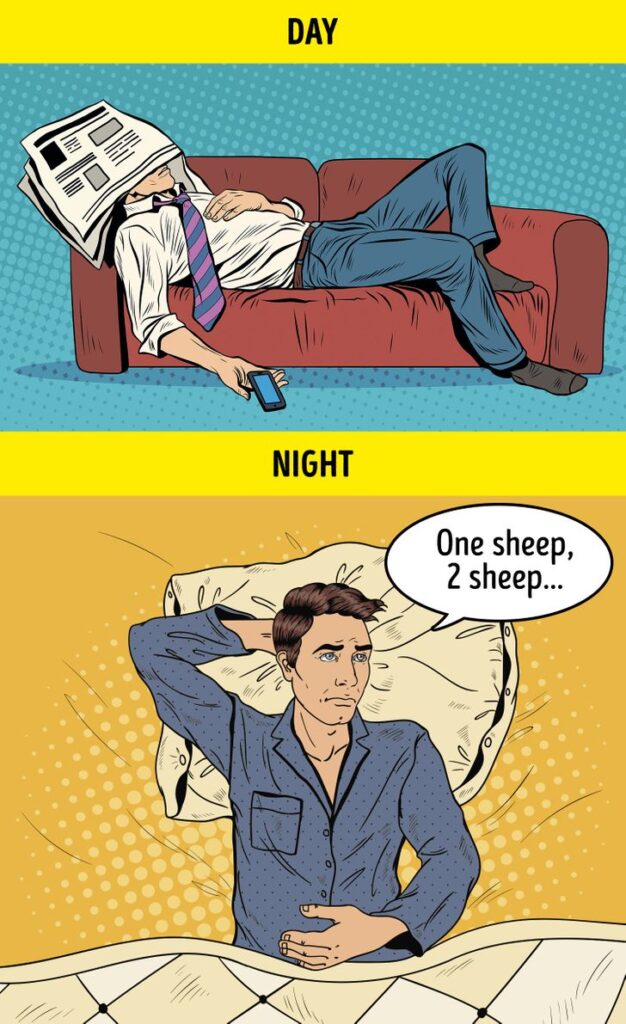
A healthy adult does not need to take a nap during the day, but people tend to fall asleep on the couch in front of the TV, on a bus, or elsewhere. If you take naps during the day, the quality of your sleep at night may deteriorate.
In addition, there is a type of insomnia that only occurs on weekends: When a person slept a lot on a weekend morning, they could not sleep at night and felt absolutely terrible on Monday morning.
If you’re sleepy during the day, it means it’s time to get up and stretch your legs. Your oxygen flow will increase, your blood circulation will improve, and you will feel much better.
You Often Skip Breakfast
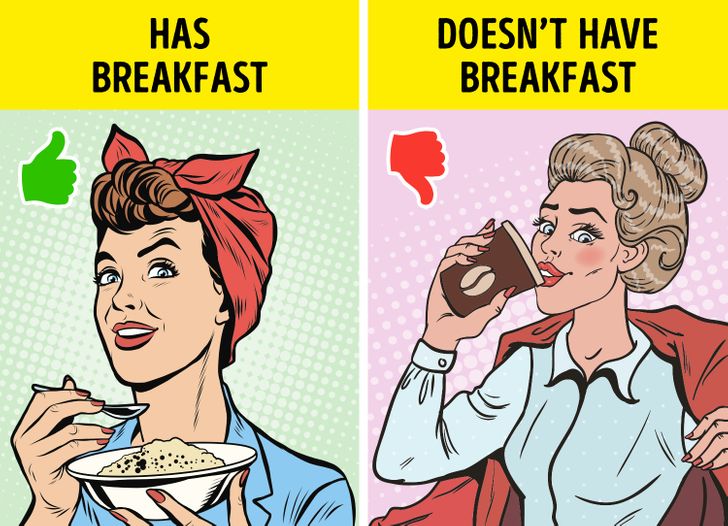
Breakfast apparently has nothing to do with sleeping at night. However, breakfast turns on your biological clock. Once the body receives some energy an hour after waking up, it starts counting the time before going to sleep at night.
Also, breakfast regulates metabolism. When you take very long breaks between meals or skip breakfast, your brain thinks you might be hungry. Thus, between meals stress hormones (cortisol and adrenaline) are produced that can cause insomnia.
You Forget To Clean Your Bedroom
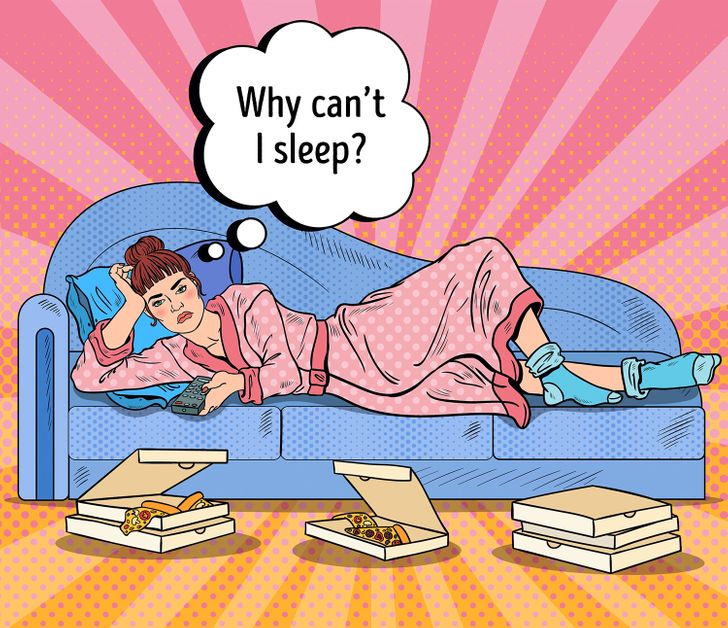
Even if you don’t seem to care about the clutter around you, your brain doesn’t think so. Clutter influences the subconscious. It is believed that our brain memorizes everything around us and if the last thing you saw before going to sleep was chaos, your sleep will also be chaotic.
Also, sleeping in the dust never made anyone feel good. One of the dustiest things we often forget is curtains.
Try to limit the number of things you have in your room and clean as often as possible to make it easier for you to breathe.
The Room Is Too Hot
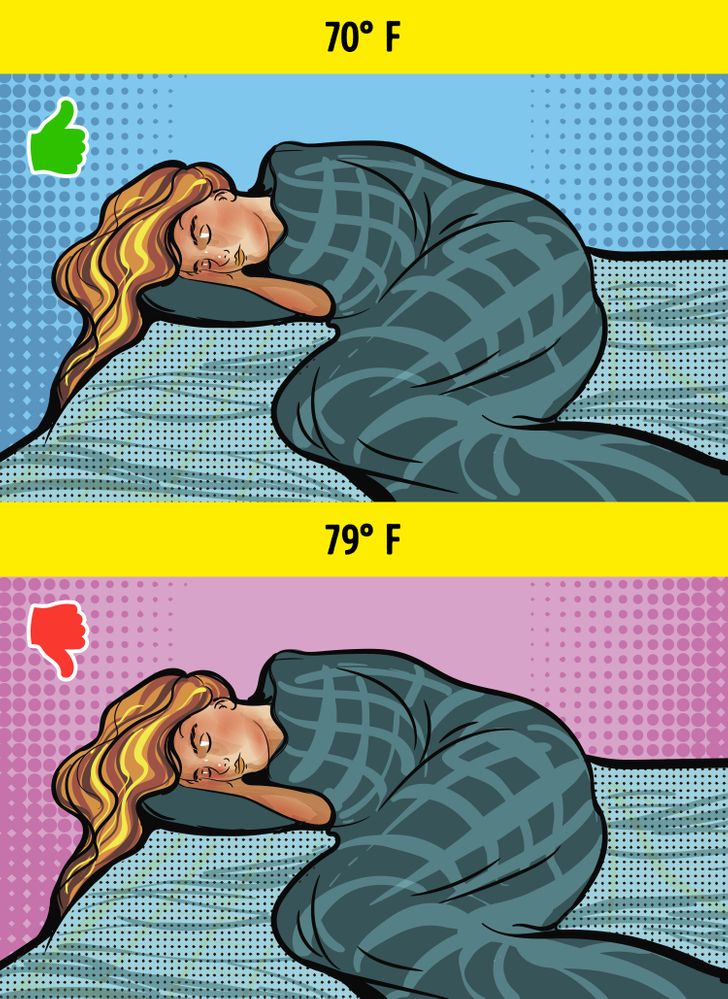
It is very difficult to say “no” to a warm room if you do not like cold. But even if you think you are more comfortable sleeping in a warm room, at night a high temperature will only lower the quality of your sleep.
If sleeping with the window open is difficult for you in winter, just open the window for 10 minutes before going to bed. The best temperature for sleeping is around 70 ° F-71 ° F.
You Sleep On Your Belly
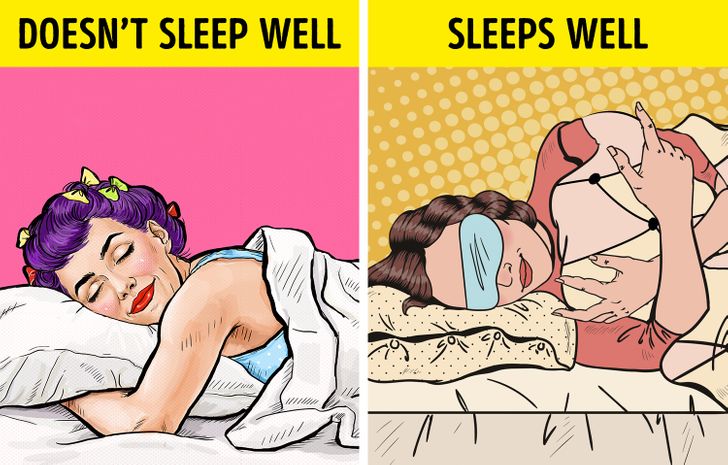
Each person has their favorite sleeping position, and psychological tests often attempt to interpret people’s character traits by the way they sleep. However, there are good and bad sleeping positions.
People sleep better if they sleep on their back or side. The abdominal position is considered the worst because, in this position, the spinal cord and muscles do not relax, the chest is tight, and breathing is difficult.
This position is especially bad for people with cardiovascular problems, lung disease, or atherosclerosis.
It is very stressful to stop sleeping in your favorite position, so you should make the transition smoothly.
Have you ever paid attention to your sleeping conditions? Let us know in the comment section.


